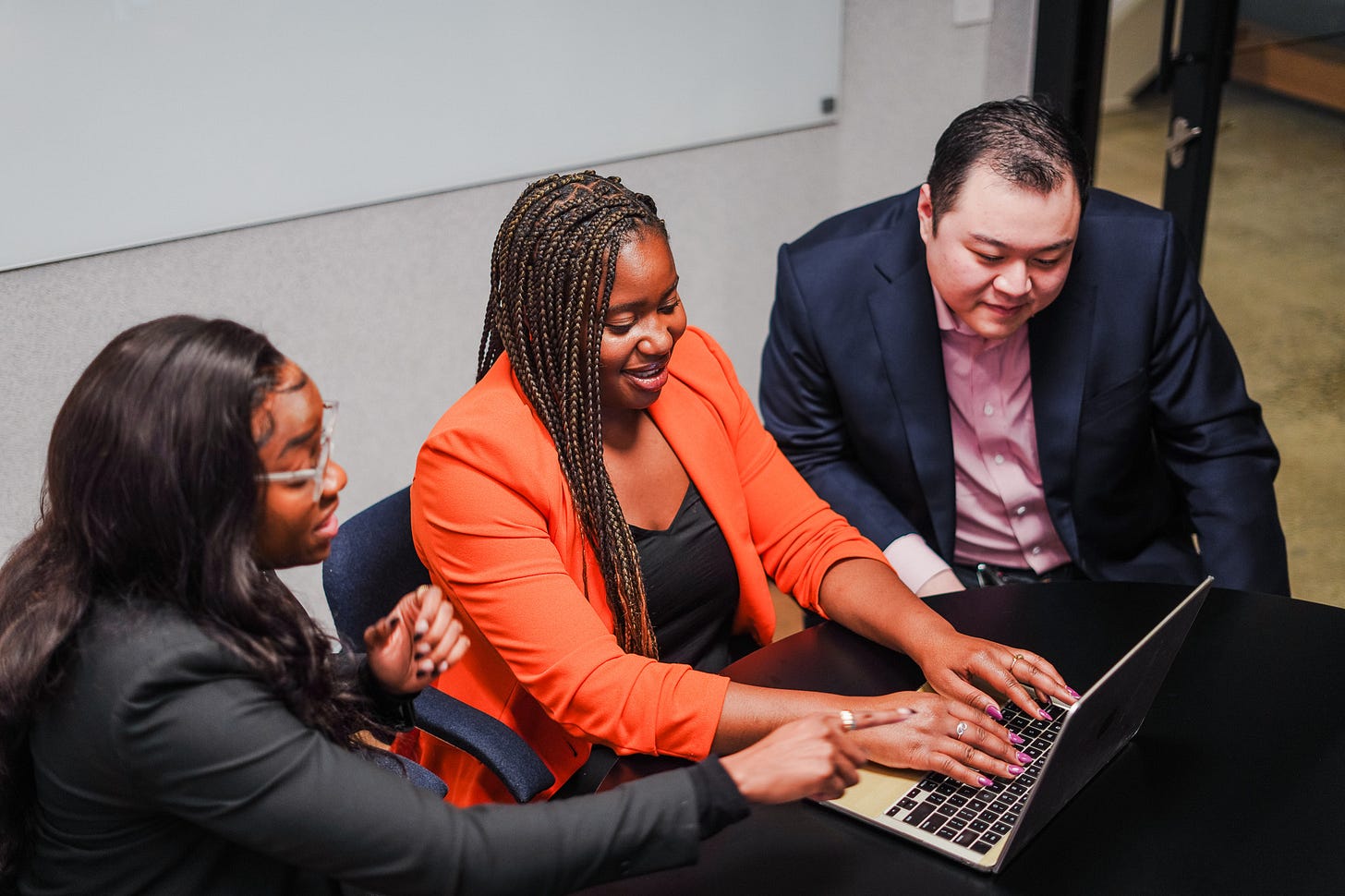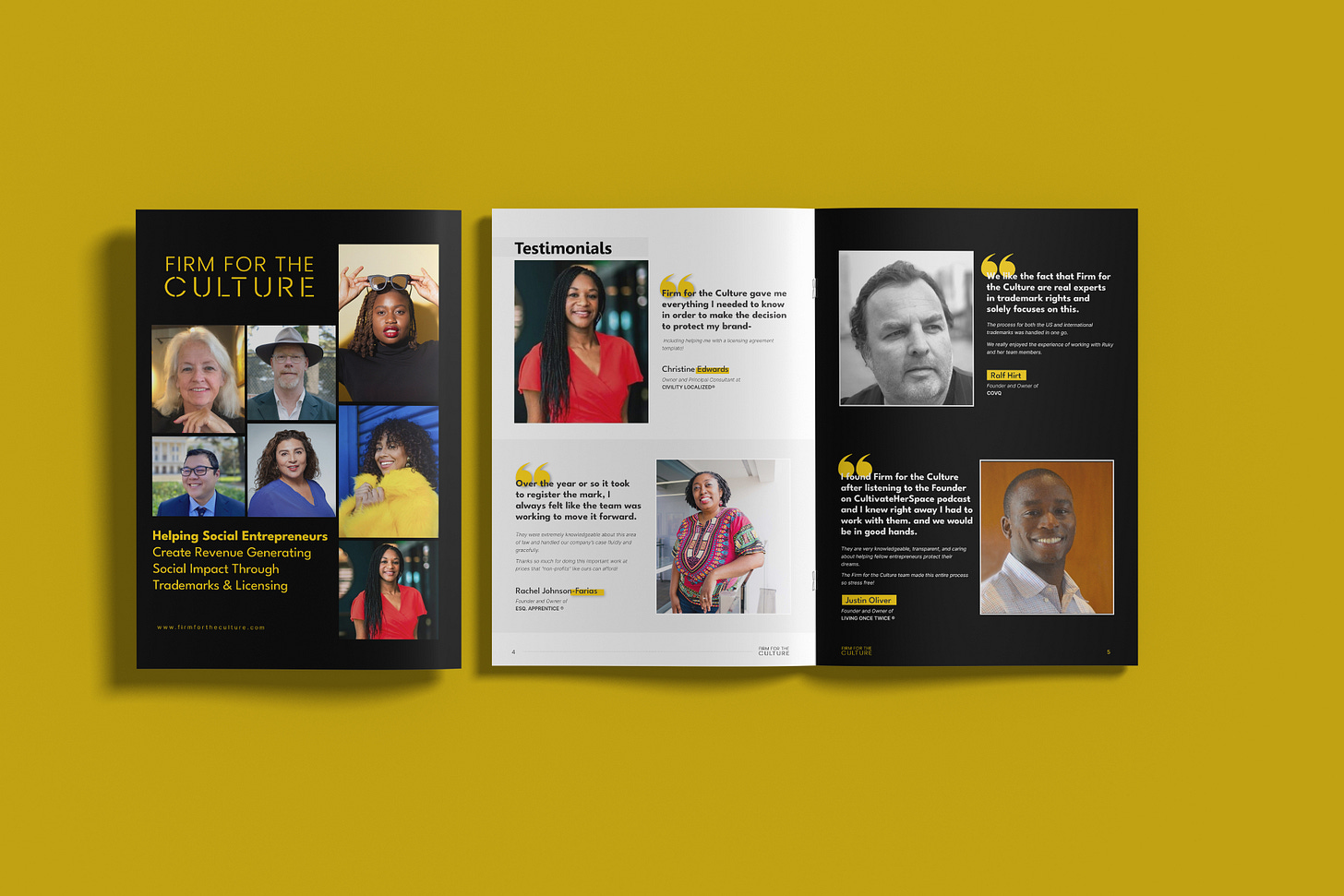Don’t Worry, You’re Going to Fail Anyways
Embracing Failure: Why It’s a Crucial Step on the Path to Success | I Am What an Intellectual Property Attorney Looks Like.
We’re coming up on the fifth anniversary of Firm for the Culture, and I could not be more excited.
Five years of full-time entrepreneurship—let me tell you, it’s been quite the journey.
There have been moments of triumph, months of wild profitability, and if I’m being completely honest, months where I’ve had to scrape just to pay the bills.
Yet, through all the ups and downs, I’ve come to one simple truth: failure is not only inevitable, but it’s a necessary part of the journey.
Because of that, I had to internalize the conviction that if I’m going to effectuate the vision, mission, and purpose of Firm for the Culture, I needed to continuously reframe my approach to failure.
So, as I unpack these lessons for myself, I hope this Founder’s Letter will help you reframe your own relationship with failure.
Loving This Post?
Show us some love by adding a “❤️” or commenting below; this will make our hearts sing.
But First, Church Announcements
I’m excited to invite you to our live session with my friend and colleague Coulter ‘Coby’ Henry Jr. - a Patent Attorney in the Intellectual Property practice, for a riveting “Ask Me Anything” discussion on all things Trademarks, Patents, and Copyrights.
Upcoming Event - Trademarks, Patents, and Copyrights for Founders and Thought Leaders
Calling all founders and thought leaders!
Join us on Thursday, November 7, 2024, for an exclusive session on Trademarks, Patents, and Copyrights for Founders and Thought Leaders
Are you a founder or thought leader with questions about using intellectual property (IP) to protect and elevate your brand?
This webinar is designed just for you!
In today’s competitive market, safeguarding your brand’s unique identity through IP is essential for growth and sustainability.
Join us to learn how trademarks, patents, and copyrights can secure your brand’s future and provide a strategic advantage.
Make sure to register and save your spot!
The event is set for Thursday, November 7, 2024 | 8:30 AM PST | 11:30 AM EST | 10:30 AM CST
👉 Reserve your spot now: RSVP Here
Now, back to the regulalry scheduled program.
1. Rejection is Sometimes Protection
As a founder, hiring has been a particularly interesting challenge lately.
There’s a truth many entrepreneurs don’t always talk about—people sometimes ghost interviews or apply with no real intent to follow through.
It can be frustrating, especially when you’re trying to scale, and every team member is a critical piece of the puzzle.
But here’s how I’ve reframed that discouragement: each “no-show” is one less person who doesn’t have the heart for this mission.
It’s protection.
I’m grateful for two things: first, the ability to build out systems that will allow me to hire quickly and efficiently when the time is right.
And second, avoiding the burden of managing a team member who’s not aligned with our culture or goals.
Every rejection is an opportunity for refinement—and protection from future disruptions.
2. You’re Still Learning, and That’s a Good Thing
This one’s tough to admit, but I’m scared sometimes.
As I bring new team members on board, there’s a little voice in my head whispering doubts: What if you’re not the leader you need to be? What if you’re so focused on strategy that execution falls apart?
But here’s what I remind myself: it’s okay to be scared because I’m still learning.
Every day is an opportunity to learn something new about leadership, about my business, and about myself.
This reframing has allowed me to view each step forward as a chance to improve, not a test of perfection.
My team benefits from my learning as much as I do—from my willingness to read more, to listen more, to get more coaching, and ultimately, to grow.
So instead of dreading failure, I see it as a sign that I’m growing. I’m doing the work. That’s what matters.
3. Adequacy is Not the Goal—Scaling Is
There are days when I feel like I’m just not enough.
When scaling a business, it’s easy to fall into the trap of thinking you should be able to handle it all, especially as the founder.
But I’ve learned to reframe this thinking, too.
The truth is, my vision for Firm for the Culture requires more than just me. And that’s okay.
The purpose of the firm is greater than any one individual’s capacity to execute.
So, I remind myself: it’s not about being adequate on my own, but rather building a team and infrastructure that can take this vision to the heights it’s destined to reach.
The fact that I can’t do it all alone is proof of the scale of the mission—not a shortcoming.
So, I rest in the understanding that building a legacy requires partnership, manpower, and a collective effort.
Knowing that gives me peace and helps me embrace growth.
These are just a few ways I’ve learned to reframe failure in my journey so far.
If you’re in a similar space—whether you’re starting a new venture, building a team, or pursuing a dream that scares you—I hope these perspectives help you shift your mindset around failure.
It’s not the end of the road; it’s just part of the process.
Thanks for reading and supporting Firm for the Culture as we continue to scale and grow.
Let’s embrace the inevitable failures on this path together, because they’re bringing us closer to success.
How has a past failure helped shape your journey or perspective in business?
Share your experiences in the comments below.
If you need further guidance, reach out to me and my team at Firm for the Culture.
We’re here to help you navigate the copyright, trademark, and thought leadership journey.
Don't forget to follow us on all platforms for more insights on intellectual property and thought leadership.
And #ThatsAWrap
The Doors of the Church Firm Are Open
Thanks for reading.
See you next time.
#ForTheCulture










Love your authenticity and wisdom, Ruky.
The mere fact that you've been able to employ people over the 5 years says a lot about your business chops, in both strategy and execution. Reading your post reminded me of how hard it is, just getting to the point where you can afford to pay people.
I wasn't able to get there with my business. Instead, I pivoted to exploiting my IP as a sole operator, a much better fit for me. Which makes it easy for me to stand back and admire what you've already built. It's an achievement you should be proud of and one that's beyond many would-be business builders like me. Brava!